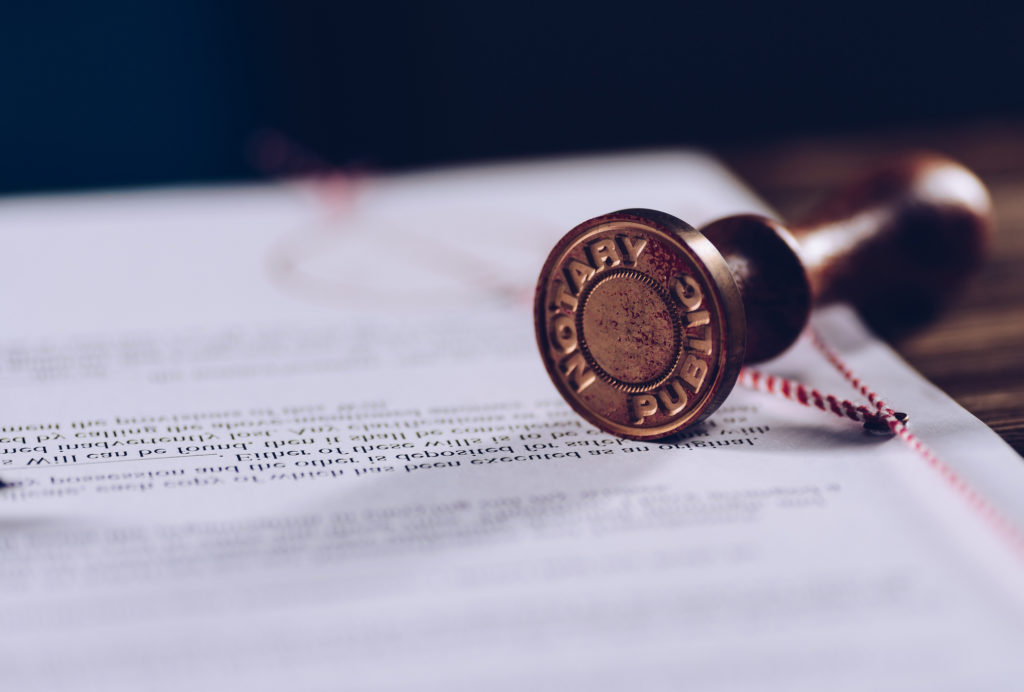Certified Notary Services: Guaranteeing Lawful Credibility and Security
Wiki Article
Demystifying Notarial Work: Streamlining the Role and Importance of Notaries
In the complex internet of lawful documentation and confirmation, notaries stand as pillars of assurance and credibility. Their role, often shrouded in enigma for several, brings considerable weight in making certain the legitimacy and stability of important records. As guardians of legitimacy and fact, notaries play a crucial part in our society, yet their job is not constantly completely understood. By unraveling the complexities losing and surrounding notarial practices light on the value of their acts, a clearer understanding arises of the essential function notaries play in promoting the fabric of lawful and legal agreements.The Background of Notarial Work
The history of notarial job days back to ancient worlds, where scribes played an important role in recording vital information and authenticating documents. This led to the development of notaries, individuals selected by the state to act as neutral witnesses in lawful issues.
Throughout the Center Ages, notaries got prestige in Europe, with their features increasing to consist of composing legal records, accrediting trademarks, and protecting documents. The increase of global trade additionally emphasized the significance of notarial operate in validating contracts and contracts throughout boundaries.
In the modern age, notaries proceed to play a vital function in lawful and organization purchases by confirming identifications, validating the credibility of papers, and preventing fraud. Their duty in licensing the validity of contracts includes a layer of protection and depend the ever-evolving landscape of commerce and regulation.

Duties and Obligations of Notaries
Notaries play an important duty in validating the credibility of documents and the identification of signatories. One of their main responsibilities is to witness the finalizing of important papers, such as wills, contracts, and acts, to guarantee that all celebrations are entering right into agreements intentionally and voluntarily.Furthermore, notaries are entrusted with carrying out affirmations and vows, which are essential in lawful process and the execution of testimonies. They accredit copies of initial documents, offering assurance to institutions that the copies hold true replicas of the originals. Notaries should preserve precise documents of all transactions they look after to guarantee openness and responsibility. Generally, the obligations and obligations of notaries are necessary in securing the integrity and validity of different papers and deals.
Notarial Certificates and Signatures
Exhibiting precise focus to detail, notarial certificates and signatures function as important parts in verifying the credibility of legal files. Notarial certifications typically include vital info such as the date of registration, the names of the signatories, a summary of the paper, and the notary's main seal. These certifications offer a clear document of the notarial act, making sure that the document can be easily identified and mapped back to the notary who oversaw the procedure.Trademarks play a crucial role in notarial job, as they represent the arrangement and approval of the celebrations entailed. Notaries meticulously witness the finalizing of documents to confirm the identity of the signatures and confirm that they are signing of their very own free choice. By fastening their main seal and trademark to the record, notaries accredit that the needed procedures have been adhered to which the file is legitimate and enforceable.
Essentially, notarial certifications and signatures are the characteristic of credibility in lawful transactions, supplying guarantee to all events included that the files are legitimate and binding.
Apostille
Significance of Notarial Acts

Notarization Process Explained
The notarization procedure usually begins with the individual offering the file to a notary public. Once the identity is verified, the notary guarantees that the private signing the document does so willingly and without any type of browbeating.
Verdict

Notarial certificates typically have important information such as the date of notarization, the names of the notaries, a summary of the paper, and the notary's official seal. These certificates supply a clear record of the notarial act, guaranteeing that the paper can be quickly recognized and mapped back to the notary who supervised the procedure.
By fastening their official seal and signature to the file, notaries license that the necessary treatments have actually been complied with and that the document is legitimate and enforceable.
By validating the identity of the signatories, verifying their determination to enter into the arrangement, and licensing the day and area of the signing, notaries play an essential role in supporting the legitimacy of lawful papers.After the document is authorized, the notary will certainly fasten their main seal or stamp onto the file.
Report this wiki page